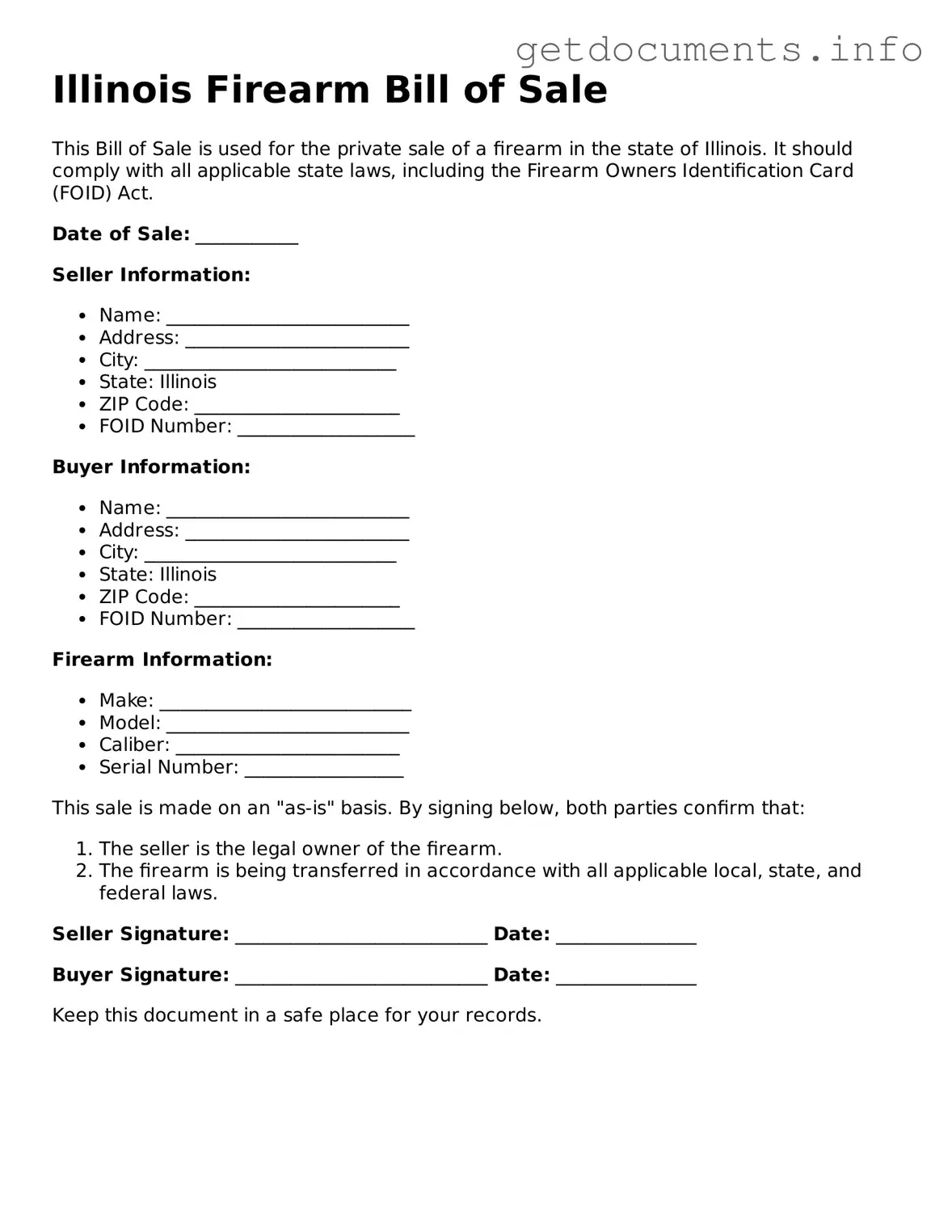Free Firearm Bill of Sale Template for Illinois
The Illinois Firearm Bill of Sale form is a crucial document used to record the transfer of ownership of firearms in the state of Illinois. This form protects both the buyer and seller by providing a clear record of the transaction. Ensure you complete this form accurately to comply with state regulations; click the button below to fill it out.
Access Firearm Bill of Sale Editor

Free Firearm Bill of Sale Template for Illinois
Access Firearm Bill of Sale Editor
Got places to be? Complete the form fast
Fill out Firearm Bill of Sale online and avoid printing or scanning.
Access Firearm Bill of Sale Editor
or
⇩ PDF File
